Helping Students to Love Learning
Message of the Day:
“I learned that people will forget what you said, people will forget what you did, but people will never forget how you made them feel.” – Maya Angelou
Our message of the day inspires and reminds us as to why we are here, a written reminder we can read/share with friends this year and in years to come.
Our volunteer teams have progress to report. Roving Caregivers accompanied some parents and their children to the two private preschools to visit these facilities. Remarkably, a child Tracy worked with in the spring of 2013 remembered her, or at least her hat – even after only two sessions back then! He has made such strides in his development, more so than other children. We marvel at what motivates one child versus another to make such tremendous gains. The etiology is not always related to one’s innate potential: it may be the timing of the intervention and/or the relationship a child forms: that is, a relationship of hope. Yes, this one lad remembered Tracey’s hat from last spring: however it was likely the relationship he formed with Tracy that led him to recall her hat.
More gains were reported. Lois is volunteering with remedial Math at the Secondary High School. At dinner tonight she talked excitedly of the “ah-ha” moment she witnessed as a teen experienced and understood a Math concept. Likewise, Judi our volunteer Writer-in-Residence feels more optimistic as compared to yesterday, as 5 to 6 enthusiastic teens commence with their writing projects. This is encouraging!
The two pre-schools share the same zeal by their teachers to maximize the human and physical resources they have been given. The happiness and exuberance of their students is evident in their singing; the joy and wonder in their eyes at lesson time an indication that their student-teacher relationship is positive. Both these schools are understaffed; their dedicated teachers very over-worked by North American standards. We assist in whatever tasks are assigned to us.
Lastly and with mixed feelings, I write about a young lad at the primary school. How can one optimally learn when one lives in such astounding poverty with a lack of environmental stimulation at home: with 9 family members of three generations living in a two bedroom house, where four children between the ages of 6 and 9 eat dinner off the floor and sleep in one bed, how can one be totally “ready” (mind, body and soul) for the next day’s class?
No wonder he feels tired at school! Yet he loves school. Why: because he can eat his lunch at a table (his desk) which gives him a feeling of personal dignity; he has friends/other supports at school who listen to him, and understand … who offer for him role modeling for how to act in most instances. This lad feels loved, despite the conditions of his life, and some inappropriate parenting strategies.
So, today and tomorrow, and for as long as we need to, we will talk and problem solve together – he and I. His principal and school district counselor and I talked today of recommendations that are needed to assist with this lad, and others like him. Does he have learning disabilities too? He needs a full battery of assessment. Will he receive this here, likely no; as such assessments are completed privately. The social safety net differs between St. Lucia and North America, being “a work in progress” here, except for the very basic of human needs, such as food, clothing and shelter, and even for these latter needs the bar is set quite low. The principal and school counselor are quite caring people, however their access to human resources for assessing children’s learning difficulties is close to nill.
This child’s needs, and the needs of others like him, resonated with me today, and into the evening. Where to start, so many needy children, so few resources. I thought to myself for a couple of days before I wrote up this report: if each pediatric hospital in the USA and Canada or even one per state/province, could sponsor but one professional once a year, and coordinate our efforts, the sum of our interventions could have such a huge impact. But for me, today, my job will be to listen, to assess, and offer recommendations, even if it is the basic of the most basic, as with the spelling of one child’s name… it made a difference to him today. His name is his identity.
– Barbara

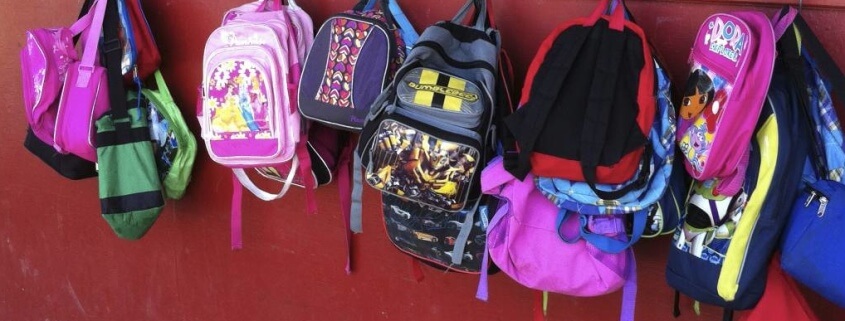
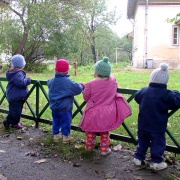
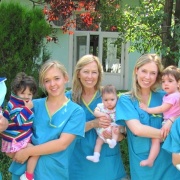
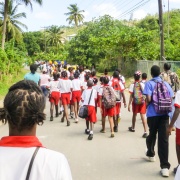
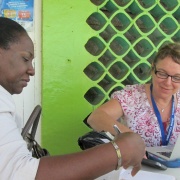
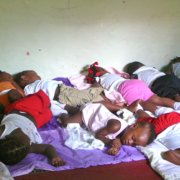
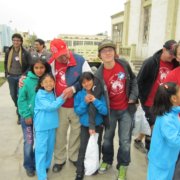
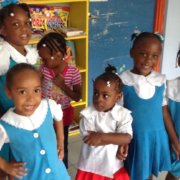
Leave a Reply
Want to join the discussion?Feel free to contribute!